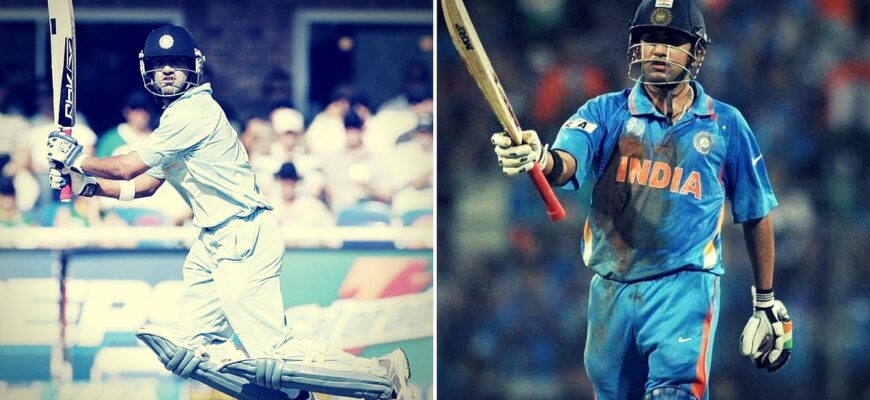In the high-stakes arena of international cricket, where every word from a coach is dissected and every performance scrutinized, Gautam Gambhir, India`s head coach, recently delivered a masterclass not just in strategy, but in candor and wit. Following India`s emphatic Test series victory over West Indies, a post-match press conference in Delhi provided a platform for reflections, future speculations, and one particularly memorable, self-effacing remark that resonated far beyond the confines of the room.
The Weight of the Helmet and the Coach`s Humor
The scene was set: India had just clinched a dominant series win, a performance that undoubtedly served as a celebratory birthday gift for Gambhir, who turned 44 that day. The mood was buoyant, yet the media, ever eager for a deeper narrative, posed a question regarding the mental fortitude of young captain Shubman Gill. Specifically, an inquiry was made about Gill potentially benefiting from a mental conditioning coach to navigate the pressures of Test leadership. Gambhir`s response was swift, succinct, and steeped in an irony that only a seasoned veteran could deliver:
“First of all, I need one.”
This wasn`t merely a quip to deflect a serious question. It was a statement rich in subtext. In an environment where leaders are often expected to project an unshakeable façade, Gambhir`s self-deprecating humor served multiple purposes. It humanized the coaching role, subtly acknowledging the immense psychological burden that comes with guiding an international team. Moreover, it offered a protective shield for Gill, shifting the focus from the young captain`s perceived vulnerabilities to the universal truth that pressure is a constant companion for everyone at the apex of professional sport, regardless of experience or position.
From Fierce Batsman to Pragmatic Strategist
Gambhir`s playing career was defined by an unyielding intensity and a fierce competitive spirit. He was known for his unvarnished opinions and a no-nonsense approach. As a coach, this intrinsic directness remains, but it is now tempered with a palpable pragmatism. His subsequent remark, “The coach is as good as the team,” further underscored this shift. It was a humble acknowledgment that success is a collective endeavor, not solely attributable to the individual at the helm. This philosophy fosters a culture of shared responsibility and mutual respect, vital ingredients for sustained performance.
Indeed, India`s recent upturn in Test fortunes under Gambhir, having secured critical victories after a period of mixed results, speaks to a renewed focus and execution. Such a statement, attributing success directly to the players, can be profoundly empowering for a squad, reinforcing belief and minimizing undue pressure on any single figure.
Navigating the Future: A Present-Day Mandate
The media`s gaze inevitably drifts towards the horizon, particularly concerning the careers of cricketing titans. Questions about the ODI future of Virat Kohli and Rohit Sharma, with the 2027 ODI World Cup looming, are almost obligatory. Yet, Gambhir, with a characteristic bluntness, anchored the discussion firmly in the present.
“Look, ODI World Cup is still about two and a half years away and I think it is very important to stay in the present.”
This pragmatic stance is a cornerstone of high-performance coaching. While long-term vision is essential, an unwavering focus on immediate objectives and current performances is what ultimately builds the foundation for future triumphs. Dwelling on hypotheticals years in advance can divert energy and attention from the critical tasks at hand. His hope for Kohli and Rohit`s success in the upcoming ODI tour of Australia, while acknowledging their quality and experience, perfectly illustrates this balanced approach: value the present contributions, and the future will take care of itself.
The Enduring Lesson of Mental Fortitude
While Gambhir`s initial remark about needing a mental conditioning coach was delivered with a smile, its underlying message is anything but trivial. In an age where sports psychology and mental well-being are increasingly recognized as crucial components of athletic success, his statement, even ironically, highlights the universal challenges faced by those in leadership roles. The pressure to perform, to strategize, to inspire, and to manage expectations can be overwhelming. His honesty provides a rare glimpse into the mental landscape of top-tier cricket management, suggesting that true strength lies not in imperviousness, but in acknowledging and managing these pervasive pressures.
Gautam Gambhir`s post-match reflections were more than just routine answers; they were a concise philosophical commentary on leadership, team dynamics, and the relentless demands of elite sport. His ability to disarm complex questions with a blend of humor and realism not only endeared him to many but also offered valuable insight into a coaching methodology that prioritizes the collective, grounds itself in the present, and understands the intricate psychological battles fought both on and off the field. In a world craving dramatic pronouncements, Gambhir delivered something far more profound: a dose of clear-eyed, self-aware wisdom.









